

Robert Owen, the son of a Newtown saddler and ironmonger, became one of the most successful mill owners of the Industrial Revolution with a reputation as the producer of fine cotton. It was not as a successful and respected businessman that he left his mark on history, but as one of the most prominent social reformers of the period, a pioneer of modern British socialism and a source of inspiration to the co-operative and trade union movements.
Robert Owen Museum
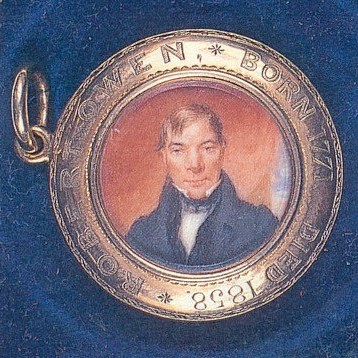
The Robert Owen Museum in Newtown, Wales, commemorates the great social reformer and ‘rational religionist’ Robert Owen, in the town where he was born and died. It is the only museum devoted specifically to Owen’s life and work, striving to show the development – and ongoing relevance – of his efforts and ideas.
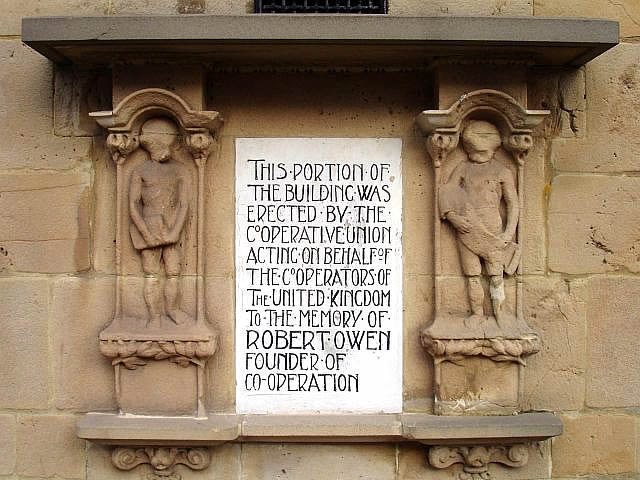
The Museum is located close to where Owen was born in 1771, and houses a collection of objects, printed material, and imagery relating to his life. From humble origins, Owen went on to exert significant influence in the realms of cooperation and secularism, with many of those inspired by him promoting and embodying the humanist values he exemplified. George Jacob Holyoake, Margaret Chappellsmith, Emma Martin, and Frances Wright were all active in the Owenite movement, drawn to its radical reimagining of society along egalitarian, cooperative lines.
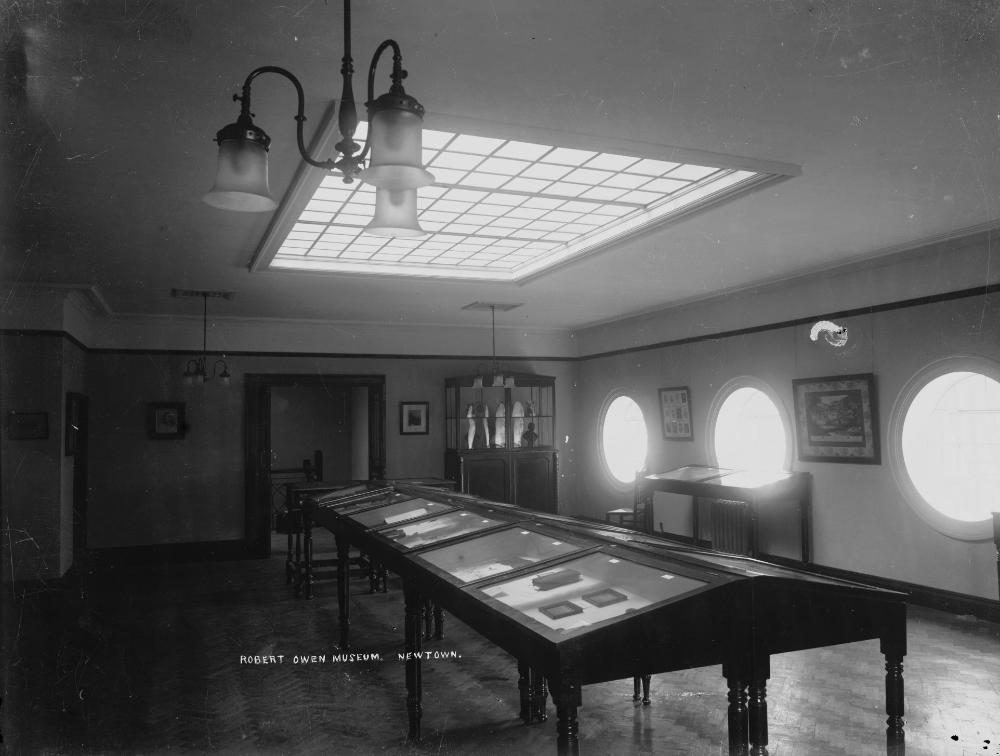
One group in Rochdale, inspired by Owen’s principles, established the famous cooperative store at 31 Toad Lane in 1844, pioneering the worldwide cooperative movement. The Rochdale Pioneers Museum, opened in 1931, tells their story.
Newtown’s Robert Owen Museum is free to visit. Not everything the Museum owns is on public display, so contacting ahead of time is advised.
Website of the Robert Owen Museum
Some of the Museum’s artworks
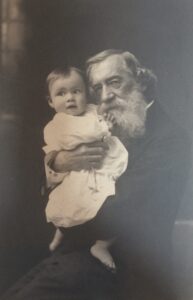
It is not because the believer in rational religion has not clear convictions that he will not shape them into […]
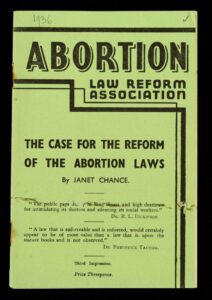
If the church was wrong, as of old, to trust to prayer in an epidemic, why shall she be right […]

Adam Duff O’Toole (Adam Dubh Ó Tuathail) was a reputed heretic, who was burned at the stake for his denials […]
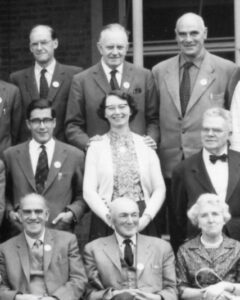
In all her work for the humanist movement, Constance Dowman said little and did much… She was one of the […]